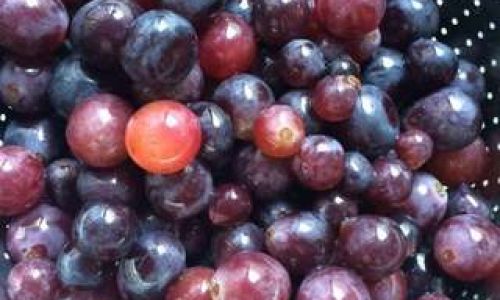Table of content
Introduction
Coconuts, often hailed as nature’s versatile treasure trove, are cherished worldwide for their nutritious value, hydration benefits, and culinary versatility. From the refreshing coconut water inside to the rich, creamy flesh that can be transformed into milk, oil, and various delicacies, coconuts offer a myriad of uses. However, one common question that often arises among coconut enthusiasts is whether storing coconuts in the refrigerator can prolong their shelf life or, conversely, expedite their spoilage. This article delves into the intricacies of coconut storage, examining whether refrigerating coconuts truly makes them go bad faster and exploring the optimal methods for preserving their freshness.
Understanding Coconut Composition and Shelf Life
Before addressing the refrigerator question, it’s crucial to understand the basic composition and natural shelf life of coconuts. A mature coconut consists of three primary parts: the hard, fibrous husk (or exocarp), the hard shell (or endocarp), and the inner lining known as the coconut meat or kernel, which surrounds the coconut water.

Coconut water, a natural isotonic beverage, is rich in electrolytes like potassium and magnesium, making it an excellent choice for hydration. It has a slightly sweet and nutty taste and is typically consumed fresh. The coconut meat, on the other hand, is high in fats, primarily medium-chain triglycerides (MCTs), which are beneficial for health. This meat can be eaten raw, processed into coconut milk or oil, or used in various culinary preparations.
Under normal conditions, the shelf life of a whole, unopened coconut can vary depending on its maturity and storage environment. Generally, young, green coconuts with tender meat and more water have a shorter shelf life than mature, brown coconuts with thicker, harder shells and drier meat. Properly stored in a cool, dry place, mature coconuts can last for several months, while young coconuts might only stay fresh for a couple of weeks.
The Refrigeration Debate
The misconception that refrigerating coconuts can prolong their freshness stems from the general belief that lower temperatures slow down spoilage processes. However, this rule doesn’t always apply to coconuts due to their unique composition and the nature of spoilage that can occur.
Coconut Water
Refrigerating coconut water can indeed keep it chilled and refreshing, which many people prefer. However, doing so doesn’t necessarily extend its shelf life significantly. Once opened, coconut water should be consumed promptly as it can quickly degrade due to oxidation and microbial growth, even in the refrigerator. The cold temperatures can slow down these processes but not stop them entirely.

Moreover, if coconut water is repeatedly subjected to temperature fluctuations (e.g., removing it from the fridge to room temperature and back), it can accelerate spoilage. The expansion and contraction of the liquid inside the coconut can cause cracks in the shell, allowing bacteria and other contaminants to enter.
Coconut Meat
When it comes to coconut meat, refrigerating it can be more complex. While refrigerating unopened coconut meat in its shell might seem like a good idea to extend its shelf life, it can actually lead to faster spoilage in some cases. The cold temperatures can cause the natural fats in the meat to solidify and alter its texture, making it less desirable for eating or cooking.
For coconut meat that has been removed from the shell, refrigeration is indeed necessary to prevent spoilage, but only for short-term storage. Properly sealed in an airtight container, coconut meat can last in the refrigerator for a few days to a week. However, long-term refrigeration can lead to off flavors and textures, such as a rancid smell or a mushy consistency.
Optimal Storage Methods
Given the nuances of coconut storage, it’s essential to adopt methods that maximize freshness and minimize spoilage. Here are some recommended practices:

Whole Coconuts
- Room Temperature Storage: For whole, unopened coconuts, the best storage method is in a cool, dry place away from direct sunlight. This mimics the natural environment where coconuts grow and helps maintain their freshness.
- Humidity Control: High humidity can promote mold growth on the outer husk, so ensure the storage area is well-ventilated.
- Inspection: Regularly check coconuts for signs of mold, cracks, or leaks, which can indicate spoilage.
Coconut Water
- Immediate Consumption: For the best taste and quality, consume coconut water immediately after opening.
- Refrigeration: If you must store opened coconut water, pour it into a clean, airtight container and refrigerate it for no more than a few days.
Coconut Meat
- Short-Term Refrigeration: For short-term storage (up to a week), remove the meat from the shell, chop it into portions, and store it in an airtight container in the refrigerator.
- Freezing: For longer-term preservation, freeze coconut meat. Wrap individual portions tightly in plastic wrap or place them in freezer-safe bags to prevent freezer burn. Frozen coconut meat can be stored for several months.
- Dehydration: Dried coconut meat (copra) has a much longer shelf life and can be stored in a cool, dry place for several months.
Conclusion
In summary, the notion that refrigerating coconuts can prolong their shelf life is a misconception that often leads to unintended spoilage. While refrigeration can be beneficial for short-term storage of coconut water and meat once they have been separated from the shell, it is not ideal for whole, unopened coconuts. By understanding the unique composition of coconuts and adopting optimal storage practices, such as storing whole coconuts in a cool, dry place and refrigerating or freezing meat and water only as needed, consumers can ensure they enjoy the freshest, most delicious coconut products possible.
In conclusion, the key to preserving the freshness and quality of coconuts lies in understanding their natural storage needs and adapting storage methods accordingly. By avoiding the pitfalls of refrigerating whole coconuts and instead opting for cool, dry conditions, consumers can harness the full potential of this tropical treasure, ensuring it retains its nutritious value and delightful taste for as long as possible.





0 comments